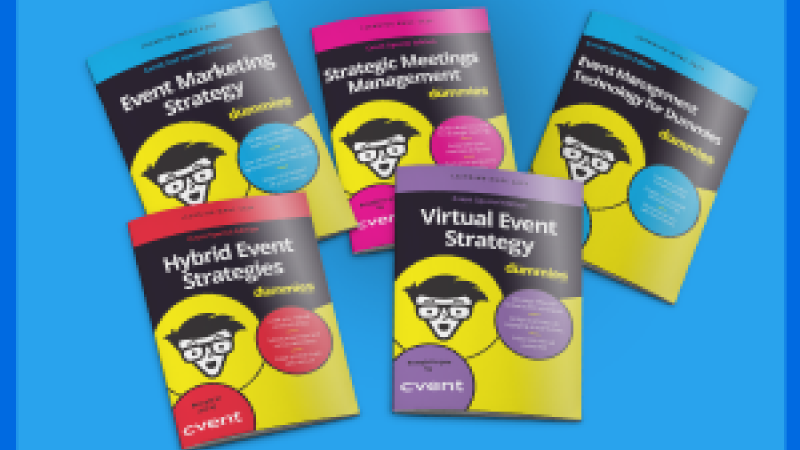After almost all events went virtual in 2020, event planners, marketers, and content creators are left trying to understand the long-term value of online, or digital-only, events. Two popular types of online events are webinars and virtual events. While both serve a similar purpose of bringing people together virtually, there are significant differences between the two.
In the world of digital events, it's easy to get overwhelmed and confused by all the different options available. Virtual events and webinars are two popular ways to engage with your audience, but what's the difference between them? Don't worry, we've got you covered.
As marketers and event planners, we're always looking for new and exciting ways to promote our brand and with the rise of technology, virtual events, and webinars have become increasingly popular. In this post, we'll break down the key differences between virtual events and webinars so you can choose which one is right for you.
What is a Webinar?
Now, let's talk about webinars. Webinars have long been a staple of most marketers’ demand-generation engines and for good reason. They can be used across the lead lifecycle to drive awareness, deliver thought leadership, nurture leads, showcase products, and create raving fans in customers.
Webinars are online presentations that usually focus on a specific topic or theme. Typically, shorter than virtual events, webinars are usually single sessions lasting between 30 minutes to an hour – although they can go longer. Webinars are interactive and offer features like polls, Q&A, and screen sharing.
In addition to lead generation, webinars can also be a valuable tool for educating your audience about your products or services. They provide an opportunity to showcase your expertise and share valuable insights with your audience. By offering value to your audience in the form of
education, you can build trust and establish your brand as a thought leader.
They can be a standalone marketing channel or part of a larger program. You can use webinars for demos, thought leadership presentations, and educational sessions. They can also be recorded and repurposed for on-demand viewing or turned into blog posts, infographics, or social media content. So, while webinars are indeed an important top-of-funnel, lead generation tool, their benefits extend far beyond that.
What are Virtual Events?
Virtual events, on the other hand, come in many shapes and sizes, including conferences, trade shows, product launches, and networking events. They offer an unprecedented level of engagement and interactivity, thanks to features like live chat, Q&A sessions, and breakout rooms.
Virtual events are typically longer than webinars, lasting from a few hours to several days, and usually have multiple sessions, keynotes, and workshops. Planning and preparation are key for virtual events, from setting up the virtual environment to organizing speakers and sponsors.
The best thing about virtual events? Networking! Attendees can connect with one another, exhibitors, or sponsors and even schedule one-on-one appointments. By leveraging registration data, you can match attendees with similar interests and facilitate group chats and breakouts. Whether it's through video calls, chat groups, or appointments, the possibilities for fostering community and engagement are endless.
Another great aspect of virtual events is the option for multiple sessions. Attendees can explore a variety of topics and tailor their experience to their interests, making it more personalized and engaging. Plus, you can get multiple messages out to your audience during a single event, maximizing your efforts and impact.
Virtual events and virtual conferences also offer interactive features like exploring exhibitor booths, engaging with sponsors, and attending breakout sessions. Attendees can truly immerse themselves in the experience and feel like they're part of a community. Virtual events can help build brand loyalty and generate long-term benefits, making them a powerful tool for any marketer.
To summarize, virtual events are the ultimate immersive experience that offers endless opportunities for engagement and networking. With multiple sessions and interactive features, virtual events provide a personalized experience that fosters community and engagement, making them a valuable tool for marketers looking to build brand loyalty and generate long-term benefits.
When to Use Virtual Events vs. Webinars
When deciding between a virtual event and a webinar, it all boils down to what you're trying to achieve.
Virtual events are a great way to create a memorable experience for your attendees, and they're perfect for building brand awareness and generating leads. But keep in mind that they require a lot of planning and resources to pull off.
Webinars are highly flexible and can be used in a variety of ways. They can help position you as an authority in your industry, educate your audience, and fuel your marketing programs.
Conclusion
Ultimately, it all depends on your goals and how you want to engage with your audience. Both virtual events and webinars can be effective marketing tools when used correctly, so it's essential to understand their differences and use them strategically.









